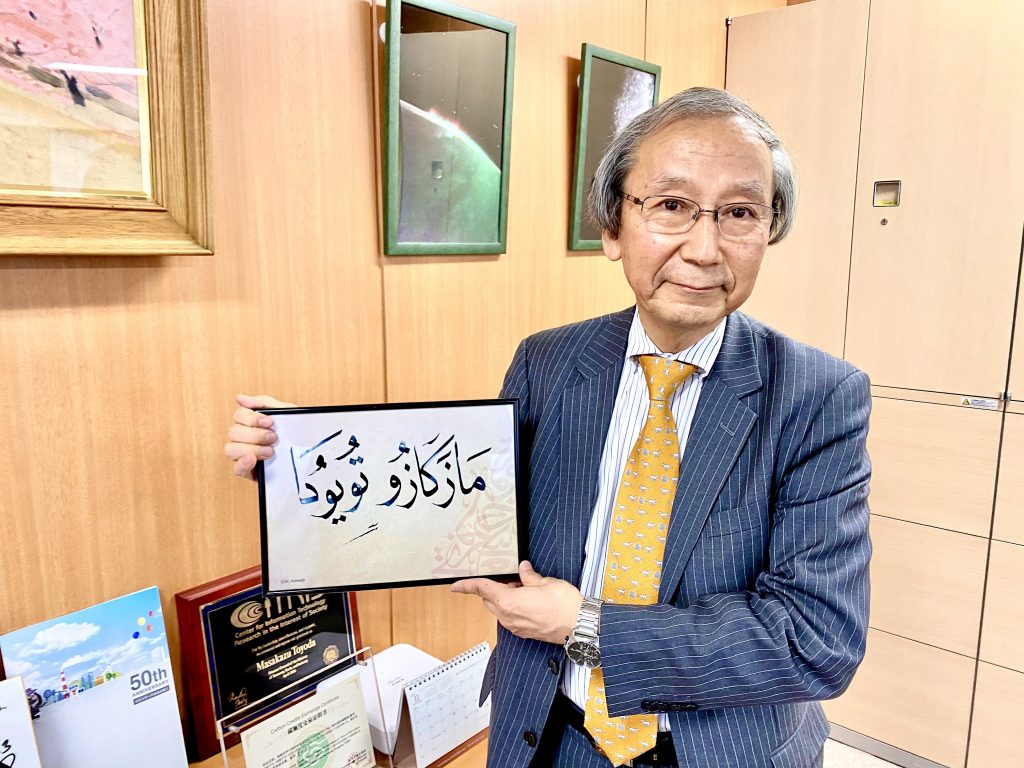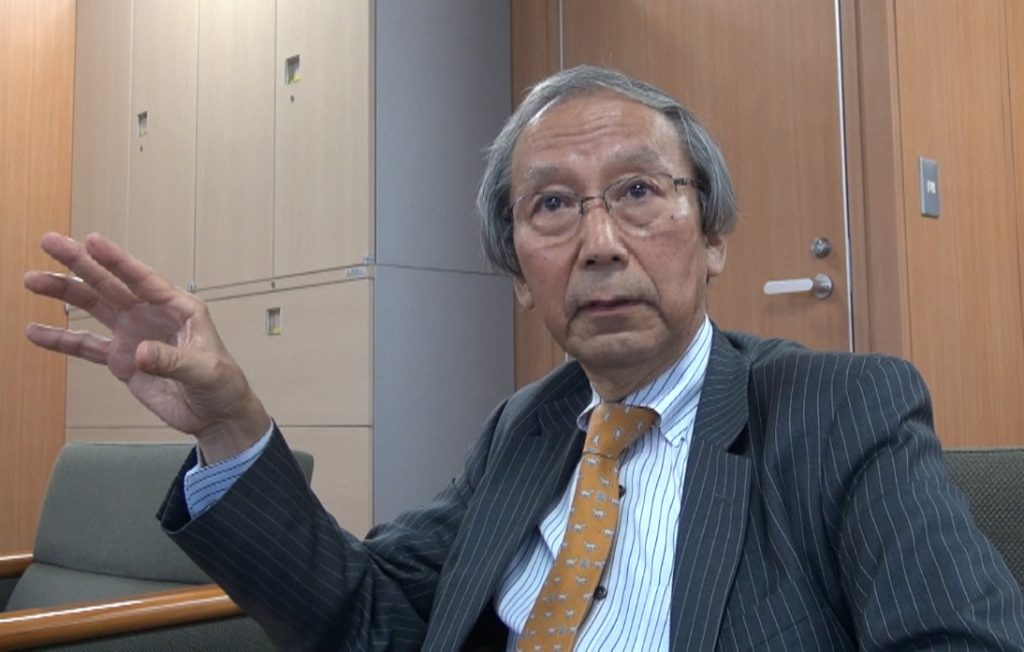



Khaldon Azhari Tokyo
The Saudi Japanese cooperation in the field of blue ammonia is in line with the new goal pledged by Japan’s Prime minister SUGA Yoshihide’s to cut greenhouse gas emissions, Masakazu Toyoda Chairman and CEO of the Institute of Energy Economics, Japan (IEEJ) said.
Tokyo is working on reforming its energy structure and by 2050, renewable will play an important role to fight the climate change. In this regard, ammonia will cement the Saudi-Japanese strategic partnership “which will be a win-win relationship,” Toyoda exclusively told Arab News Japan.
Saudi Arabia sent its first-ever shipment of blue ammonia to Japan at the end of September as part of an effort to move toward hydrogen as a cleaner fuel. Ammonia is easily transportable and can be used to produce hydrogen. Experts said Saudi Arabia can utilize its vast reserves of oil to produce ‘blue’ hydrogen that can be shipped to countries like Japan.
“At this moment, we depend on the fossil oil for a high percentage in our energy mix. This is the result of the Fukushima nuclear accident” Toyoda explained.
Based on the decades’ long Japanese sensitivity to energy crisis, energy policy makers in the country maintain that stability of resources for sustainable use of fossil oil and gas, or “energy security,” is crucial for the country.
While both countries work together to develop sustainable new technologies, such as the ammonia, “the biggest challenge for is the cost,” Toyoda said.
“Ammonia and Hydrogen are too expensive compare to other energy resources, and we have to reduce the cost as soon as possible,” he added.
The other factor is the power generation plants and availability of advanced ports.
“We have to improve the infrastructure. And from that standpoint we gradually start commercializing the products. Maybe it is going to be comfortable for both of us to start that around 2030. This means we still have 10 years and the commitment of the Japanese government is not 2030 but 2050 so we have still 30 years to go,” Toyoda said.
The CEO also referred to the similarities in the environment in Asia compared to the Middle East. “Unlike the Middle East, we don’t have much sunshine in Japan,” he explained. “Further, and unlike North Europe, we don’t have stable wind power. We have typhoons that can be very strong and can’t utilize windmills unfortunately. This is why the ammonia business is important for the Japanese government as a source of power.”
Toyoda said that gradually, “we have started to utilize Hydrogen this year and will have demonstration using ammonia combing oil and gas to have single firing of ammonia, and share it with other countries.”
He explained that they were faced with two challenges; the first is bringing the high cost down. The second is improving the infrastructure in particular ports.
“We thought we could commercialize ammonia before hydrogen. But since it is not decarbonized, so we will decarbonize it in cooperation with Aramco and Sabic.
Toyoda added that by 2030, they could start commercializing it substantially, and “the market is huge.”
For that, utilizing existing supply chain could continue, he said.
“Ammonia is already exported from Saudi Arabia to many countries and simply we can continue to use those supply chains,” Toyoda added.
“Transportation and industrial sectors are huge, and the market is expanding but probably it takes more time. In 2030 we could commercialize hydrogen as well.
Chairman Masakazu Toyoda graduated from University of Tokyo in 1973, and holds a Bachelor in Law. In July 2007, he was appointed to the post of Vice Minister for International Affairs at the Ministry of Economy, Trade and Industry (METI).. Mr. Toyoda assumed his current post at IEEJ in July 2010.
On Nov. 3, the IEEJ Chairman was awarded the Order of the Sacred Treasure, Gold and Silver Star, an award is given in recognition of national or public services, and in honor of distinguished accomplishments of in various areas of society.